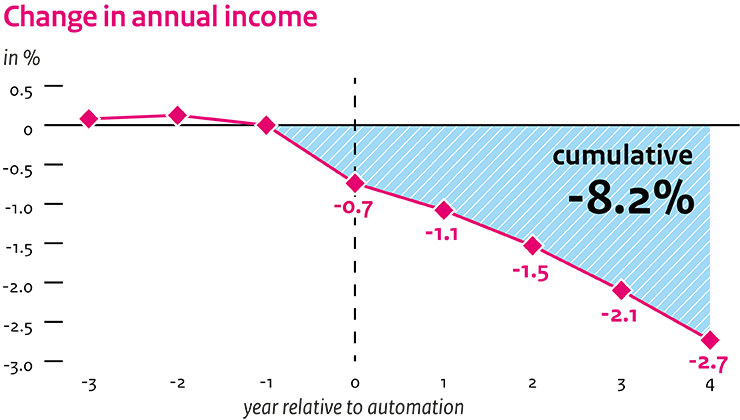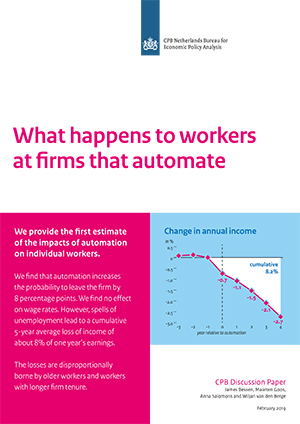Automatic Reaction – What Happens to Workers at Firms that Automate?

Downloads
We provide the first estimate of the impacts of automation on individual workers by combining Dutch micro-data with a direct measure of automation expenditures covering firms in all private non-financial industries over 2000-2016. Using an event study differences-indifferences design, we find that automation at the firm increases the probability of workers separating from their employers and decreases days worked, leading to a 5-year cumulative wage income loss of about 8% of one year’s earnings for incumbent workers.
We find little change in wage rates. Further, lost wage earnings are only partially offset by various benefits systems and are disproportionately borne by older workers and workers with longer firm tenure. Compared to findings from a literature on mass layoffs, the effects of automation are more gradual and automation displaces far fewer workers, both at the individual firms and in the workforce overall.
Authors

